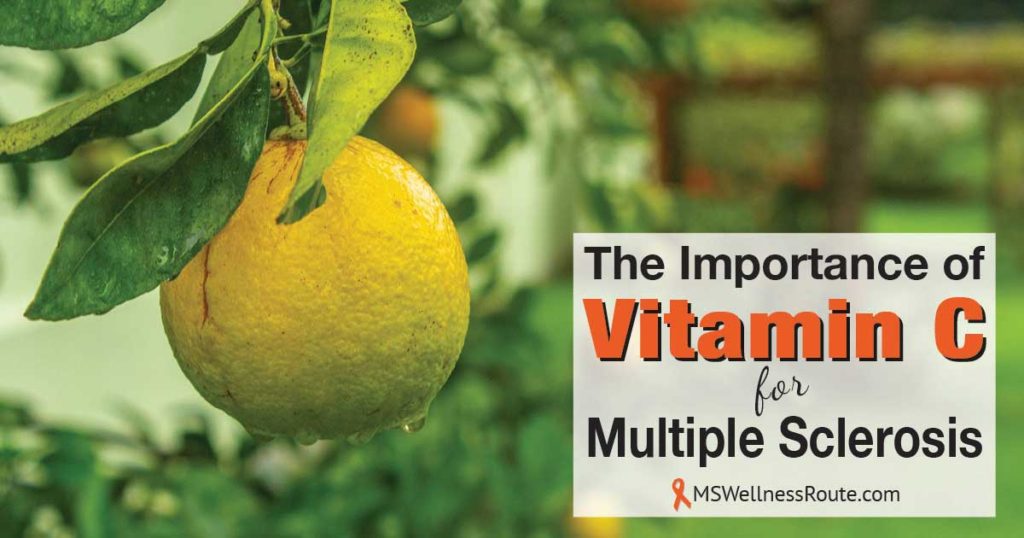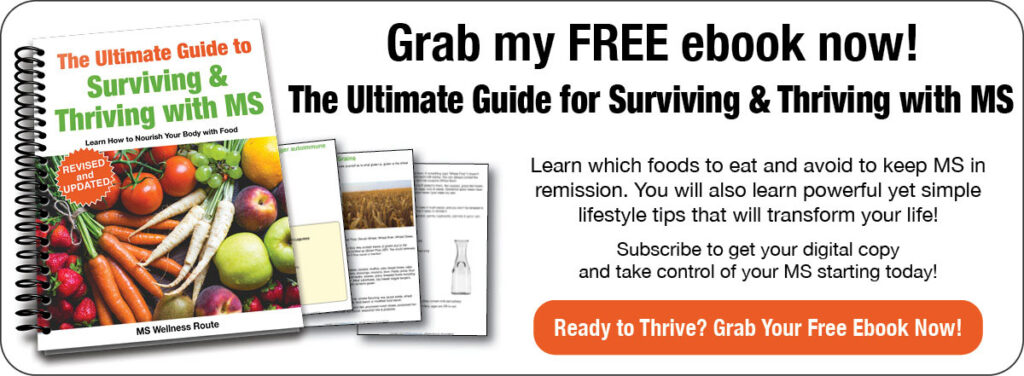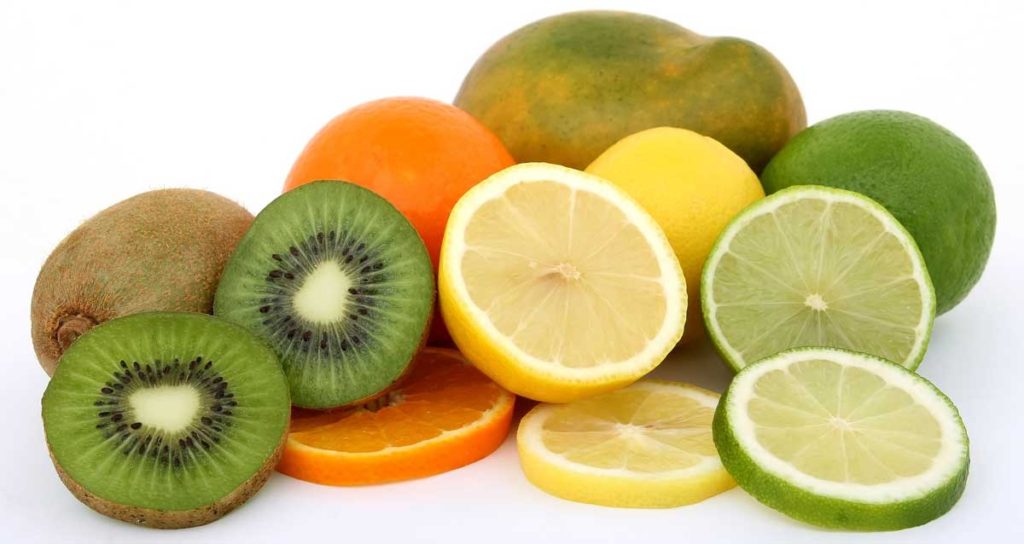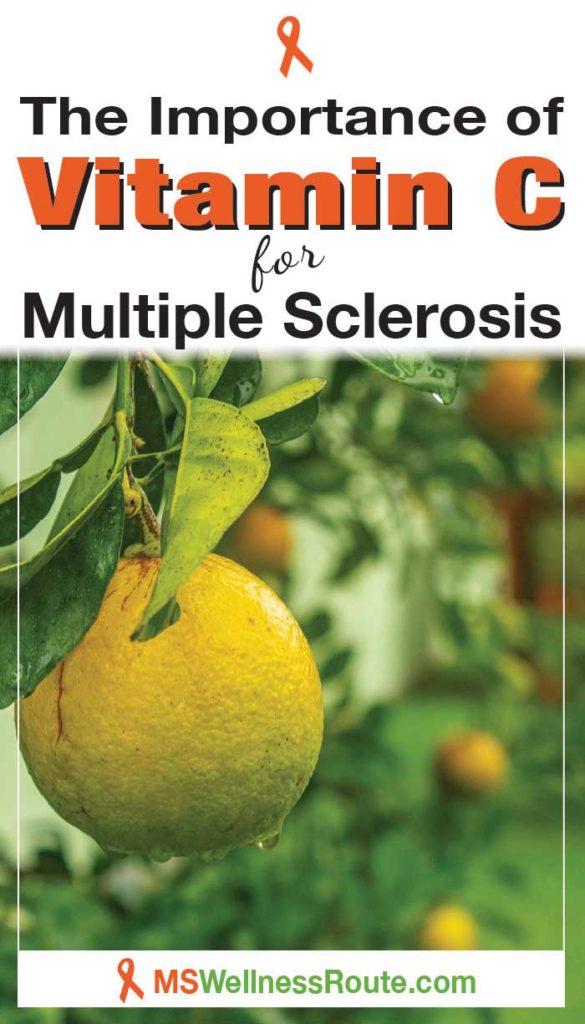Last Updated on November 25, 2023 by Cathy

Vitamin C, also known as absorbing acid, is an essential micronutrient. It has the ability to restore the central nervous system function. Which is essential for multiple sclerosis (MS).
It is a powerful antioxidant for people with MS. Because, it protects the brain and spinal cord from free-radical damage. It helps to strengthen the immune system. This is why people take extra vitamin C when they start feeling sick.
“Vit C is important for proper nervous system function… thought to be accompanied with neurological disorders.” – PubMed
Overall, vitamin C protects the immune system and from tissue damage. Studies have also shown it is effective against heavy metal toxicity. It even affects how we express our DNA and genes.
“… the beneficial effect of vitamin C against heavy metal toxicity.” – PubMed
Vitamin C deficiency leads to:
- Anemia
- Bleeding gums
- Infections
- Muscle degeneration
- Plaque buildup
- Poor wound healing
- Scurvy
- Tooth loss
There are two types of vitamins, fat-soluble and water-soluble. Vitamins C and B are water-soluble which means they are not stored in the body. Unlike fat-soluble vitamins, A, D, E, and K, toxicity is rare since it flushes through the body.
There are many reasons why vitamin C levels are low including:
- Cancer
- Heavy metal toxicity
- Hyperthyroidism
- Kidney disease
- Viral illness
Certain drugs can also lower vitamin C levels including antibiotics and painkillers.

Vitamin C and MS
Studies show vitamin C is a very important brain antioxidant and may affect the course of MS. They also show people with MS have lower levels compared to healthy people, the reason is unknown.
Vitamin C plays a key role in the prevention of cognitive decline (an MS symptom). It protects the brain from free radicals and oxidative stress. Plus, it is a key factor in the recycling of other antioxidants such as vitamin E. (Don’t take vitamin E if you are on a blood-thinning medication.)
Benefits of vitamin C for people with MS:
- Anti-inflammatory
- Better cognitive function in the elderly and possibly in MS
- Building block used to produce collagen (collagen heals a leaky gut)
- Has the ability to restore the central nervous system function
- Helps brain function
- Helps prevent colds and flu
- Generally safe
- Improves mood
- Increases bone density (osteoporosis is common in people with MS)
- Linked to the formation of the myelin sheath
- Lowers the risk of infections
- May increase levels of proteins responsible for the tightness of the blood-brain barrier
- Natural antihistamine
- Prevents neuronal damage (sending and transmitting nerve impulses)
- Promotes collagen production
- Protects the brain and spinal cord from free-radical damage
- Reduces anxiety and depression
- Reduces oxidative stress
- Transmits signals through the nervous system by way of neurotransmitters
- Stimulates mitochondrial function (powerhouse for cells)
- Studies looking into a high dose of vitamin C as a possible therapy for MS
- Very important brain antioxidant for MS
“Vit C is known to affect numerous metabolic processes directly associated with immune system.” – PubMed
Vitamins C along with vitamins A and E are antioxidants. They improve cell damage by free radicals. Researchers believe these vitamins are beneficial for people with MS. But the need for more studies to confirm it.
Food Sources of Vitamin C

Unlike most mammals, our body does not make vitamin C. Instead, you must get it from the food you eat. You can easily get enough by eating plant-based foods.
Foods high in vitamin C:
- Acerola cherries
- Bell peppers (green, orange, red, yellow)
- Broccoli
- Brussels sprouts
- Cantaloupe
- Citrus fruit
- Kale
- Kiwi
- Leafy greens
- Mustard spinach
- Papayas
- Parsley
- Pineapple
- Rose hips (a small, sweet rangy fruit from the rose plant)
- Sauerkraut
- Strawberries
- Thyme
- Tomatoes (nightshade)
- Turnips
Vitamin C Supplements

The recommended daily amount is 65 to 90 milligrams (mg) a day. Most people can get enough through the foods they eat. But, people with MS need a higher amount to help heal the central nervous system.
Too much vitamin C is unlikely to be harmful since it’s a water-soluble vitamin. However, if you are taking other supplements like vitamin D it can cause serious side effects.
Some MS patients on high doses of vitamin D had life-threatening kidney failure after taking vitamin C.
Eat a wide variety of fruits and vegetables to get all the nutrients to help your body heal.
Always talk to your doctor about any supplements you are taking.
High or mega doses may cause problems such as:
- Abdominal cramps
- Diarrhea
- Headache
- Heartburn
- Insomnia
- Kidney failure if you are taking mega doses of vitamin D
- Nausea
- Vomiting
The highest recommended amount is 2,000 mg a day. Spread the dosage throughout the day since your body doesn’t store vitamin C. Increase your dose slowly to avoid side effects. If you experience diarrhea, cut back your dose.
I take a supplement and spread it throughout the day. For example, say you are taking 2,000 mg each day. You will want to take two 500 mg supplements in the morning and two supplements 12 hours later. This will give your body day and night support.
Eat a nutrient-dense diet with a wide variety of fruits and vegetables to get plenty of vitamin C. Supplements will help give you the added therapeutic levels needed to help heal.
Disease-Modifying Therapies (DMTs)
If you are on one of the DMTs for MS you need to be careful when taking vitamin C. DMTs aim to suppress your immune system, antioxidants boost your immune system. This may counteract some DMTs, talk to your doctor before you start any new supplement.
Quick Links To Information In This Post:
Tips To Heal Your Leaky Gut
You Could Have A Histamine Intolerance
Are Nightshades Bad?
Stopping the Progression of MS
Stopping the progression of your MS is a top priority, reversing your symptoms is next. Eat a healthy diet, live a clean lifestyle, exercise, get plenty of sleep, and reduce stress.
“Vit C, being a very important brain antioxidant, may affect MS course.” – PubMed

Free Wellness Library!
Subscribe for free and I’ll send you the password to my secret library filled with many printables for your wellness journey.
Want to remember this health tip? Pin it to your favorite Pinterest board!

Resources:
https://www.ncbi.nlm.nih.gov/pmc/articles/PMC5537779/#sec5-nutrients-09-00659title





